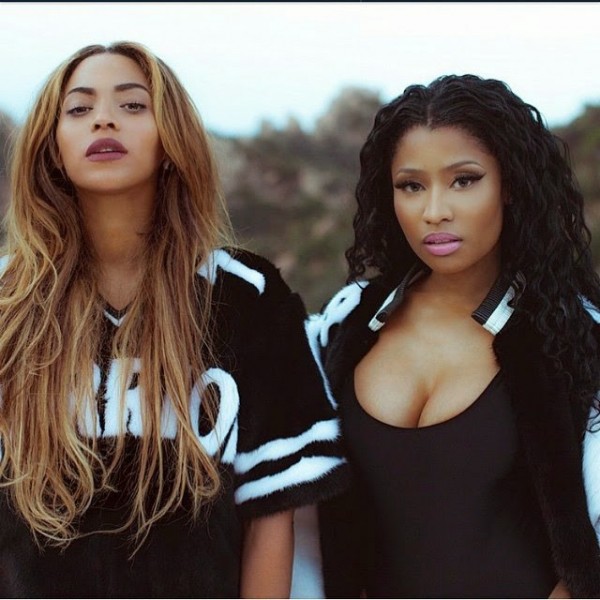 Farruko’s remix of his Latin trap hit “Krippy Kush” with Bad Bunny and Rvssian, featuring Nicki Minaj and 21 Savage, isn’t just the Puerto Rican artist’s first charting track on the Billboard Hot 100 — the super-collab also marks his first time working with a major English-speaking artist. As a fiery new music video pushes the track to No. 88 on the chart dated Jan. 6, Farruko explains how his biggest foray into the U.S. market to date came together.
Farruko’s remix of his Latin trap hit “Krippy Kush” with Bad Bunny and Rvssian, featuring Nicki Minaj and 21 Savage, isn’t just the Puerto Rican artist’s first charting track on the Billboard Hot 100 — the super-collab also marks his first time working with a major English-speaking artist. As a fiery new music video pushes the track to No. 88 on the chart dated Jan. 6, Farruko explains how his biggest foray into the U.S. market to date came together.
“Krippy Kush” is your first venture into Latin trap music rather than reggaetón. What inspired the shift?
I really wanted to expand. I respect and love reggaetón because it’s the genre that helped me be known, [but it’s] too marketed — you say a bad word and everybody looks at you like an alien and radio programmers won’t play it. But with [streaming], fans [can] listen to what they want.
How did you end up collaborating with Nicki and 21 Savage?
They heard the song, loved it, and decided to jump on it. For me, it is an honor. I am very grateful, because it is the first single from my album TrapXFicante and has been a success thanks to Bad Bunny and Rvssian who also were the creators of this song with me.
What were they like to work with?
I met Nicki the day of the video recording — due to my schedule, I couldn’t meet her at the studio. She is an amazing woman, and the music video is something rare. I was very nervous, because it is the first time that I collaborate with an [English-speaking] artist with a big name such as Nicki Minaj, and she is really cool.
How did it feel to learn you’d hit the Hot 100 with “Krippy Kush?”
Because the song is so explicit and it is Latin trap, [I thought that] the radio programmers wouldn’t play it. I honestly did not think that it could reach the top numbers — and it was the opposite. Before, you had to wait for the label to approve a single, and also to wait for the radio programmer to approve the song. If it was explicit, they [wouldn’t] play it. I think that the fans had the opportunity, with all the streaming services happening right now in the music industry, to be able to choose what they want to hear.
Why do you think “Krippy Kush” is popular across language barriers?
Music has no language anymore. For a long time now, [English-speaking] artists have been looking for a way to join the Latin market. Maybe, with the reggaetón, they felt insecure because they said, “this is not my style, I’m going to sound badly.” I think [Latin trap] gives them more security when working with a Latino artist. Hip-hop and trap are big genres that are heard by millions of people.
Support InfoStride News' Credible Journalism: Only credible journalism can guarantee a fair, accountable and transparent society, including democracy and government. It involves a lot of efforts and money. We need your support. Click here to Donate
